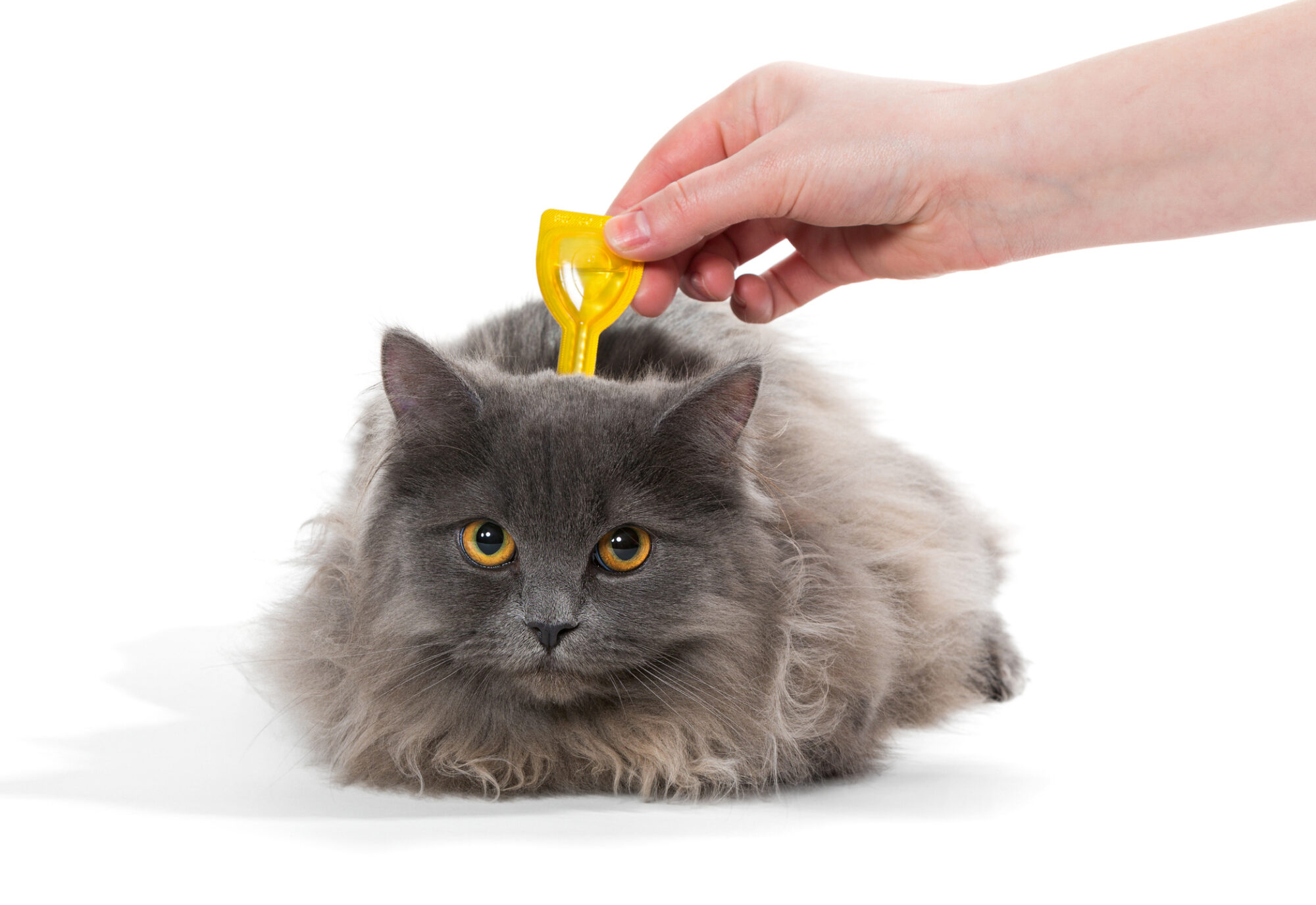Blog
Protecting Your Pet from Fleas, Ticks, and Heartworms

When it comes to parasite prevention in pets, a strong offensive is truly the best method for safeguarding a pet’s health. In Florida’s environment fleas, ticks, and heartworm-carrying mosquitoes are a threat year round, no matter what zip code or neighborhood you live in.
Let’s Talk About Fleas
There is no doubt, fleas are terrible as they make pets miserable. While they pick up speed during the summertime, fleas remain a year-round threat in Florida. Responsible for causing itchy skin in pets, they can also trigger an allergic reaction and spread disease. Flea allergy dermatitis occurs when a pet is highly sensitive to a protein found in flea saliva. The initial itching can accelerate into a full-blown allergic reaction and secondary skin infection, leading to pain and misery.
As if that’s enough, fleas can transmit tapeworms, blood infections, cat scratch disease and even the bubonic plague. Pets can also develop anemia if fleas go undetected and untreated.
Fleas tend to be easier to find on dogs when compared to cats. Cats clean themselves multiple times in a day, removing adult fleas. Additionally, cats typically have thicker coats so it is more difficult to get to the skin were fleas reside before they scurry out of sight. Tail tell signs for flea issues for a dog is when they bite their rear end, just above the tail. Cats tend to have fleas accumulate behind their ears.
Ticks Are Real Bad Guys
Perched on blades of grass, sticks, and leaves, ticks lie in wait for their prey to walk past them. They make their way through the fur coat to the skin where they attach themselves with a cement-like substance. Their feeding tube may have barbs that keep them in place for their long blood meal.
It can take up to 48 hours for a tick to transmit disease to their host via feeding. Lyme disease is definitely the most well-known tick-borne illness, but they can also spread Rocky Mountain spotted fever, Ehrlichiosis, and Babesiosis. If they aren’t removed carefully, their head can remain embedded in the skin, leading to other health complications.
Avoid Heartworms At All Costs
While we can’t do anything about the outside temperature or humidity, we can definitely influence a pet’s possible exposure to heartworm-carrying mosquitoes.
Mosquitoes pick up heartworm disease from infected hosts. Microscopic heartworms are ingested during their blood meal. When they travel to another host, the heartworms are deposited straight into the bloodstream. These worms eventually arrive in the heart and lungs where they grow and mature into full reproducing adults.
Effective treatment is available for dogs in the early stages, but complications may arise in later stages of the disease. There is no treatment for cats, and most cases lead to early mortality.
Go Offense!
The best way to counter any potential attacks from fleas, ticks, or mosquitos is to establish and maintain a year-round parasite prevention practice. There are topical and oral medications available for cats and dogs but it is imperative that the medications are used as prescribed – MOST ARE SPECIES SPECIFIC. Also, not all preventions are equally effective; for example, fleas have adapted to withstand some over the counter medications by developing a thicker exoskeleton. We can help you find the right prevention for your best buddy.
Other pest control tactics include:
- Apply flea, tick, heartworm and intestinal parasite treatment regularly, as prescribed by your veterinarian
- Treat the environment for these pest; ensure you tell your licensed exterminator that you have pets so they us safe treatments
- Remove standing water and keep your yard tidy and clear of natural debris
- Pick up pet waste immediately
- Keep your pet’s interior environment clean
Above all, if you have any questions or concerns about your pet’s health and wellness, please call us at (407) 831‑5205. Our staff is always here to help at South Seminole Animal Hospital.
